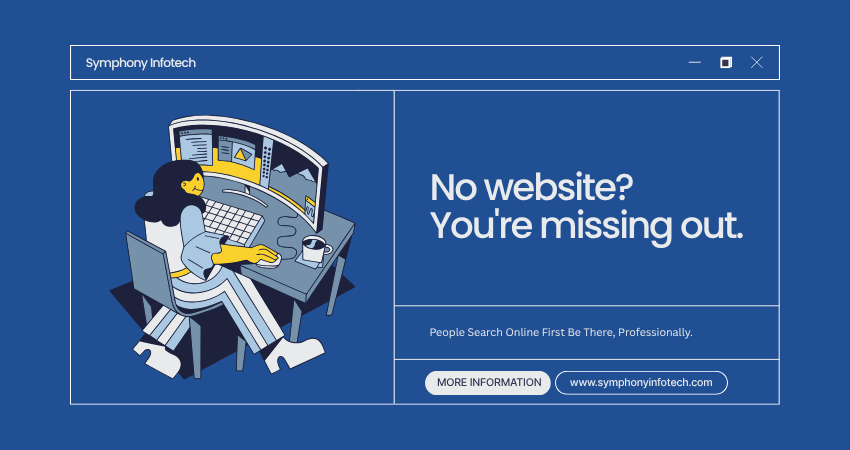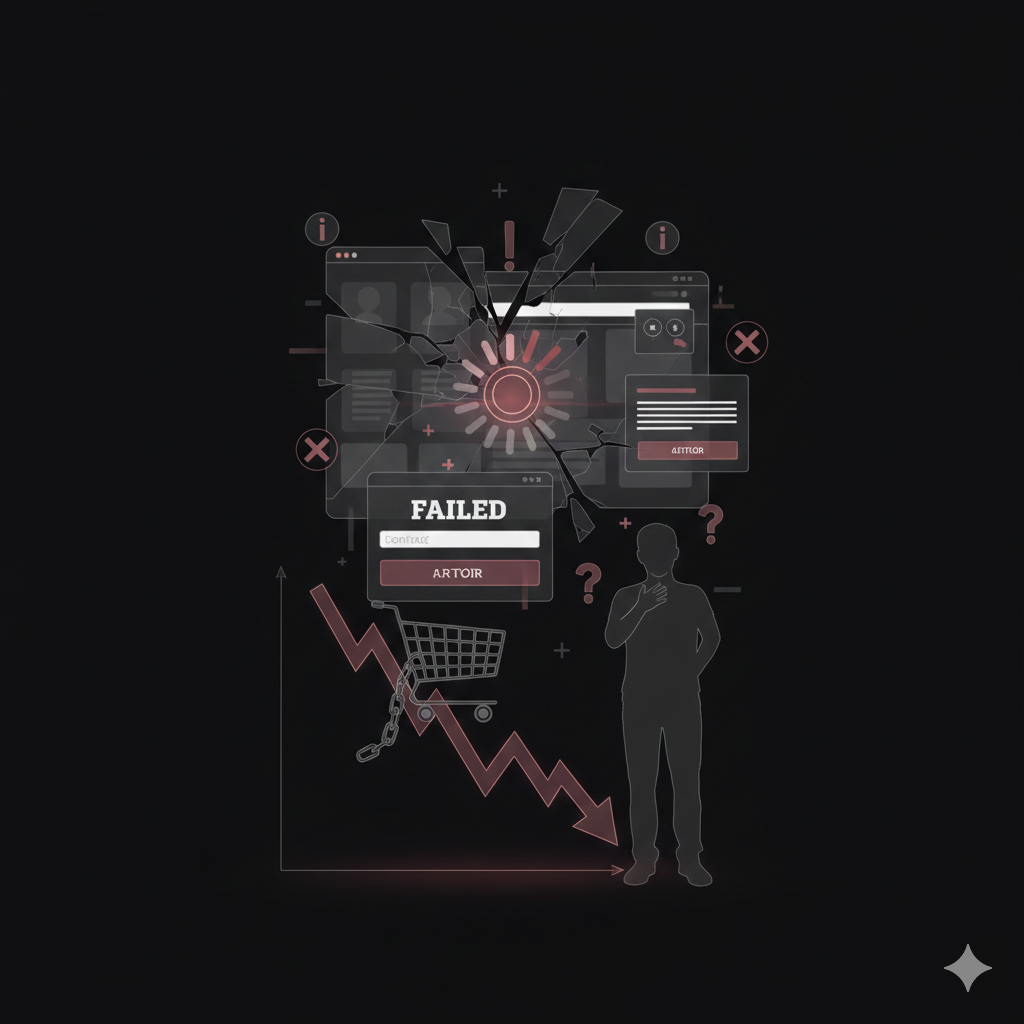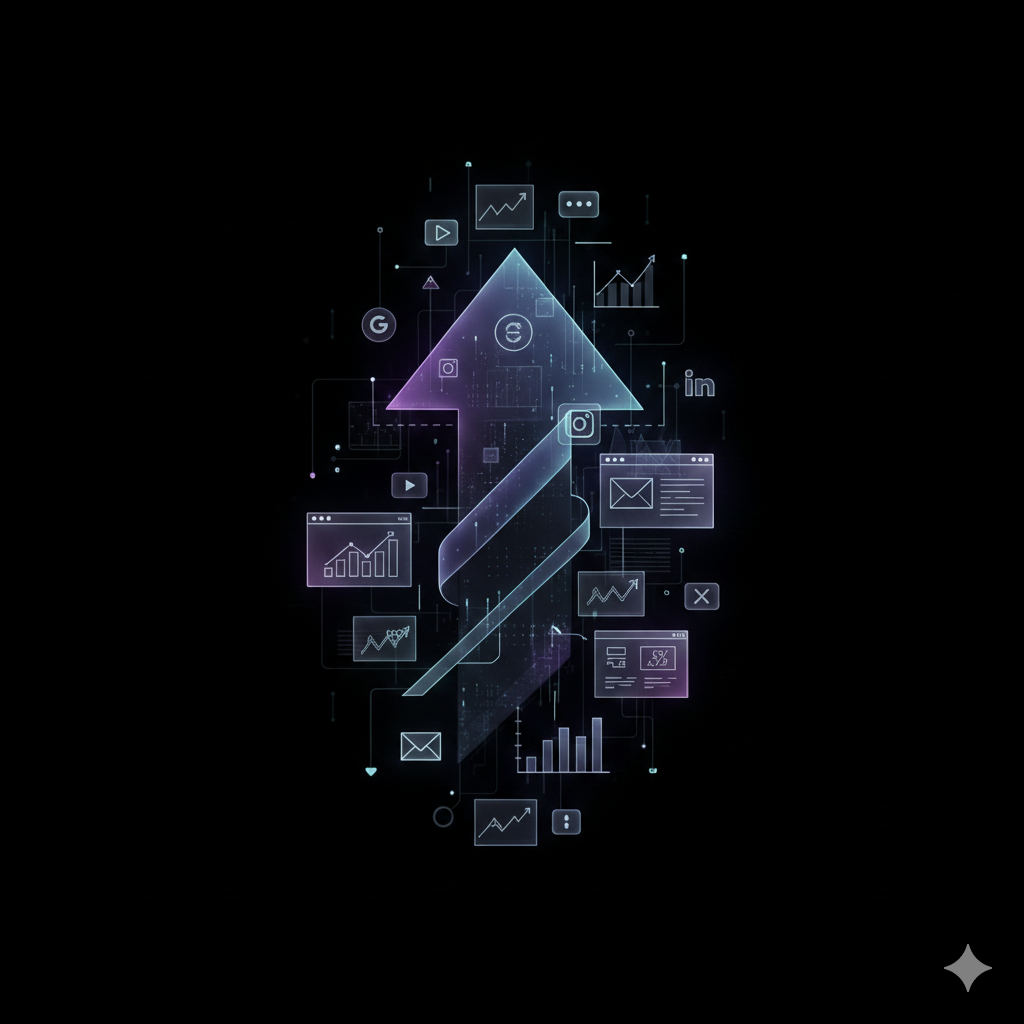No Website? You are Missing Out Here is Why Your Business Needs to Be Online
In today’s hyper-connected world, digital marketing is no longer just an option — it’s a necessity. From the moment your potential customer picks up their phone or opens their laptop, digital marketing channels are shaping their decisions. Whether you're a small business owner, an entrepreneur, or managing a large brand, understanding digital marketing can be the key to unlocking business growth.
What is Digital Marketing?
Digital marketing refers to the use of online platforms and digital technologies to promote a brand, product, or service. It includes everything from search engine optimization (SEO) to social media, email marketing, online ads, and more.
Unlike traditional marketing, digital marketing allows you to reach your audience where they spend the most time — online. Plus, it gives you powerful tools to track performance, personalize messaging, and adjust your strategy in real-time.
The Core Components of Digital Marketing
Let’s break down the most popular forms of digital marketing:
1. Social Media Marketing (SMM)
Platforms like Facebook, Instagram, LinkedIn, and Twitter are great for building a community around your brand. Through content, paid ads, and community engagement, businesses can increase visibility and customer loyalty.
2. Email Marketing
Still one of the most cost-effective marketing tools, email allows businesses to send targeted messages directly to a customer’s inbox — whether it’s a newsletter, product update, or special offer.
3. Bulk SMS
For quick, time-sensitive communication, SMS marketing is unbeatable. Businesses use it to send alerts, promotional offers, and reminders directly to customers’ phones.
4. Display and Mobile Advertising
Display ads appear on websites and mobile apps as banners or popups. These ads can be highly targeted based on browsing behavior, demographics, and interests.
5. Influencer Marketing
Collaborating with influencers — individuals with a large following in a particular niche — can help your brand tap into a trusted and engaged audience.
6. Video Advertising
Video content is booming. Platforms like YouTube, Instagram Reels, and TikTok allow brands to tell their story creatively and reach users with short, engaging content.
Why Digital Marketing Matters
-
Wider Reach: Connect with customers globally or in your local area.
-
Cost-Effective: Reach more people for less money compared to traditional ads.
-
Measurable Results: Use analytics tools to see what's working and what’s not.
-
Highly Targeted: Tailor your message to specific audiences based on behavior and demographics.
-
Competitive Advantage: Stand out in your industry with a strong online presence.
Final Thoughts
Digital marketing is constantly evolving, and staying ahead of the trends is essential for long-term success. Whether you’re just starting or looking to improve your current strategy, investing in digital marketing can yield incredible returns.
Start small — choose one or two channels that align with your — and build from there. The digital world is full of opportunity. Make sure your business doesn’t miss out.
For readers looking to understand cricket and casino gaming access in India, this detailed guide on Mahakal Cricket ID and Mahakal Casino ID explains the process clearly.






